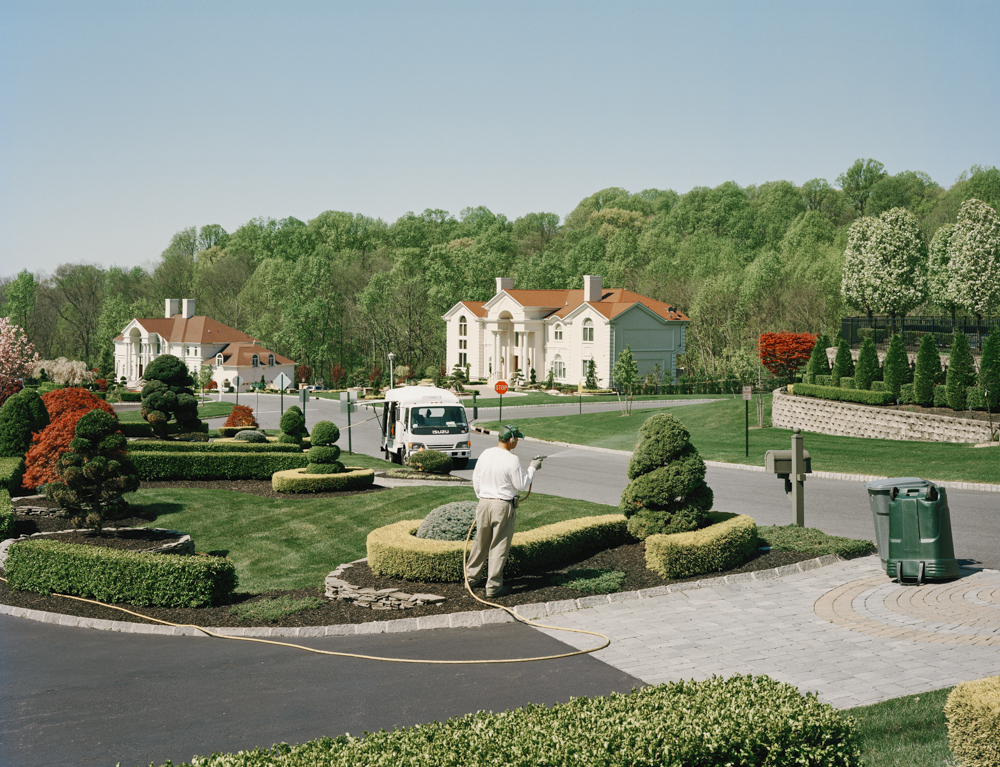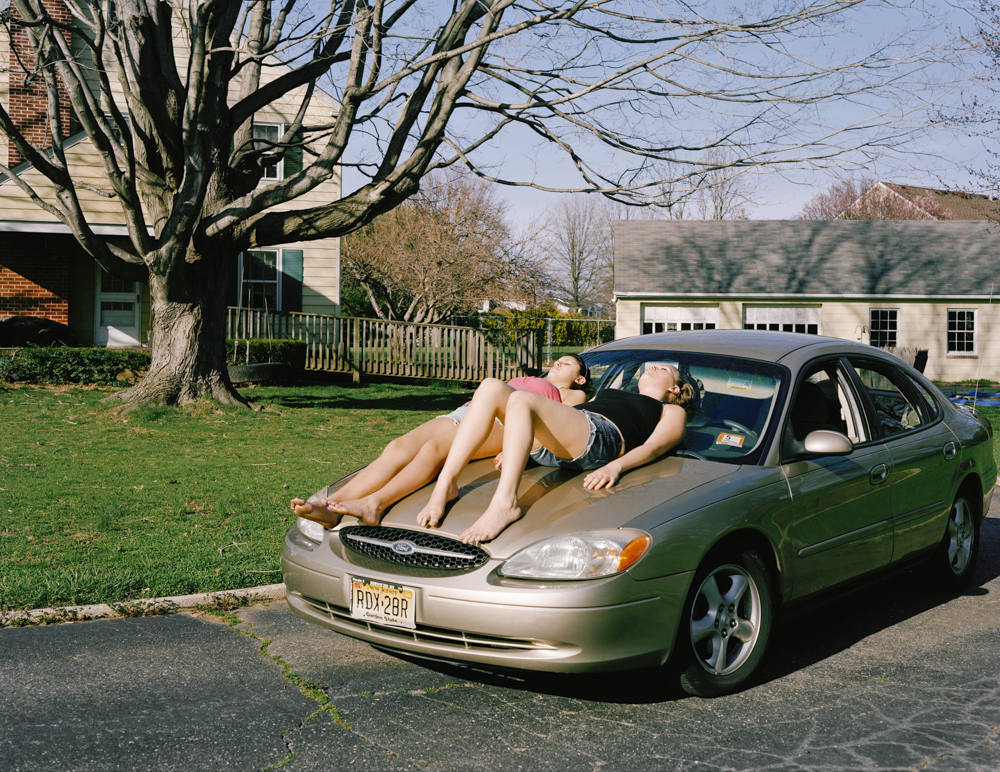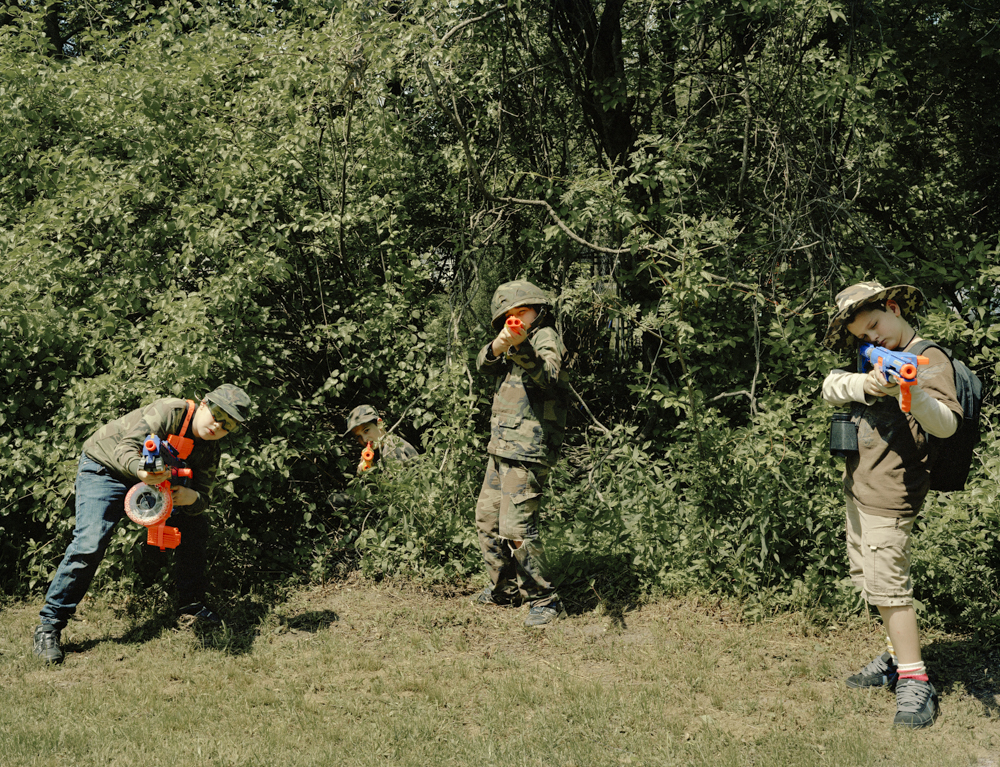Artist Blog
Every week an artist whose single image was published by Der Greif is given a platform in which to blog about contemporary photography.
Interview with Adrienne Grunwald
Dec 23, 2015 - Ying Ang
My time here is up and I just wanted to wish everyone a wonderful holiday season and thank you for tuning in :) Thanks to Der Greif for giving me the floor and I hope you enjoyed what I was putting down. If you want to view more work of a similar ilk, my personal blog is yingangphoto@tumblr.com and my social media handles are @yingang.
For my last post as guest blogger this week, I'd like to introduce a dear friend of mine, photographer Adrienne Grunwald, based in New York City. She is a part of the same creative collective as me, MJR, and we come from very similar places… disenfranchised products of the burbs, albeit on opposite sides of the world. The sterile and innocuous strangeness of the suburbs spread very much through the semi-urban areas of the West are increasingly common breeding grounds for photographers. Hard won middle class comforts and an unsettling sense of emptiness with an urgent gut feeling that there must be something more out there.
AG: My journey into documentary photography began when I realized my camera was a way to investigate the communities and people around me. Growing up in the New Jersey suburbs, I had nothing to do. I ached for adventure, for a purpose, and for a way to understand the illusion and absurdity of it all.
YA: How old were you before you began to understand that photography was an important part of your life? And at what point did you decide to commit professionally to photography as a career and what instigated the change?
AG: A career in photography was always an idea in my life. But when it came time to make it real, I was full of fear. I had no connections, no ideas, no way to make it work, no mentors, so I decided to keep it safe and get a marketing job. Around the age of 27 I remember feeling so unsettled in my comfy corporate gig that pursing a career in photography felt like my only choice at happiness.
YA: Do you think that feeling like an outsider in your own community fueled that need to be an observer? What do you think fuels the need to make a record of it?
AG: I think there is a definite link between the forced banality of my youth and my current desire to record and evaluate its purpose. In a way, photography allows me to re-archive my experiences, to take a deeper look at the communities I have been a part of so I can search for clues in the in-between. Why I am this way? Who are the people that live here? What are the traces of it left behind in me?
YA: What do you think it is about the suburbs that represents a void of adventure, purpose and substance for you? Are there any saving graces to living there?
AG: I lived in a town where you went over a friend’s house and they had the exact same house as yours. Same layout, same bedrooms, same stairs, same everything, and you would think, wow that’s strange. There was nothing romantic or adventuresome about it, nothing to look forward to, nowhere to go. It felt, in a way, like an empty place. Thankfully my family was my saving grace - love those guys.
YA: Do you think that this is something that you will explore further in your professional life as a photographer? If so/not, why?
AG: In my eternal attempt to flee suburbia, I find myself constantly drawn to it. The class structure, the materialism, the cultural artifacts, the gender roles, the microcosms, I am completely in awe of it all. So yes, I need to explore that further.
YA: As someone who has returned to her hometown to photograph a social critique of it, with subjects that I have had lifelong relationships with, my concern about hurting the feelings that I photographed was a big part of how the work played out. Is this something that would also be a factor in your work? Can you understand the resentment of the critique from people who have chosen to live out their lives in such a place?
AG: I think I am usually most concerned with upsetting my parents. They grew up in cities and thought they were doing the right thing for us by moving us to the suburbs. We all want to believe we are doing the best for our family and so of course I can understand the resentment from those who choose to stay. My hope is that our work can in some way start a conversation about the places in which we inhabit and the implications of their design on the generations to come.




